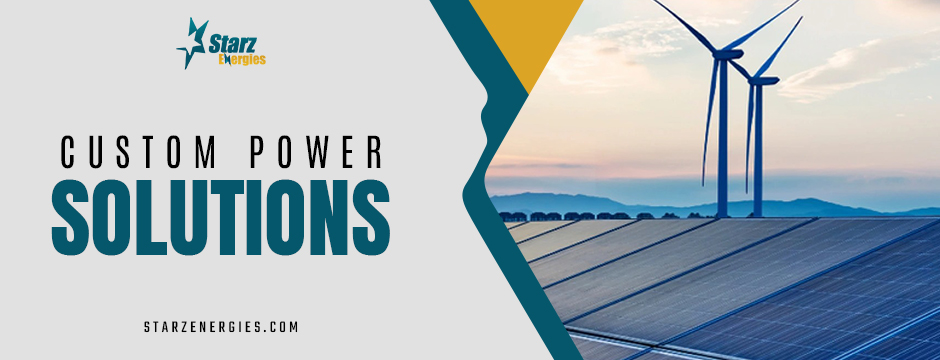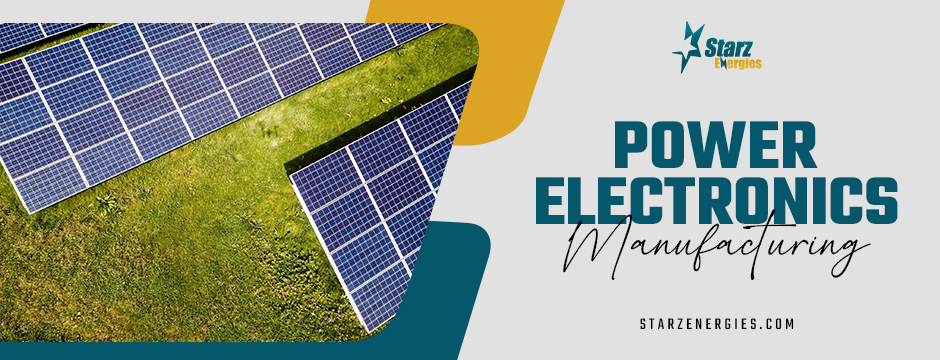
Energy Storage Solutions
July 10, 2025
How Battery Technology Solutions Are Powering the Shift to Smart Cities
Smart cities are rapidly changing the way we live, work, and move. From self-adjusting traffic lights to solar-powered homes and electric buses, modern urban areas are becoming more connected and efficient every day. But all of these innovations share one crucial need—reliable and intelligent energy storage. That’s where battery technology solutions come in. These advanced systems store and manage energy smartly, helping cities run smoothly around the clock. Whether it’s powering emergency services during an outage or balancing the energy load during peak hours, batteries are essential to smart infrastructure. As cities grow and the demand for clean energy rises, the role of efficient battery systems becomes even more vital. In this blog, we’ll explore how these powerful solutions are driving the global shift toward smarter, greener, and more sustainable urban living.
What Are Battery Technology Solutions?
Before we dive into smart cities, let’s understand what battery technology solutions are. In simple terms, these are advanced systems that store energy for use later. They are smarter than regular batteries. Why? Because they use real-time data. They monitor temperature, voltage, and performance. They can be customized to match the needs of different industries. Unlike older batteries, today’s systems are not just for backup. They play a central role in managing energy across entire cities. Furthermore, modern battery technology solutions combine hardware and software. The battery stores power. The system manages and distributes it smartly.
Why Smart Cities Need Smart Energy
A smart city uses digital tech to make life better. It includes smart buildings, electric transport, connected infrastructure, and intelligent lighting. But none of this works without strong power systems. Here’s the catch: most cities still rely on old energy grids. These grids are not flexible. They can’t store energy or adjust to sudden demand. This is a big problem. Smart cities need real-time energy control. They must handle solar power, electric vehicles (EVs), and IoT devices. This is where battery technology solutions shine. They act as a bridge. They balance the grid. They store extra power from solar or wind. Then, they release it when needed. In addition, they help reduce blackouts. They lower energy costs. They make cities safer and more efficient.
Key Benefits of Battery Technology in Urban Areas
Let’s break down the major benefits battery technology solutions bring to smart cities:
Energy Storage and Backup
When the sun sets or the wind stops, power drops. But cities don’t sleep. That’s where batteries come in.
They store clean energy during the day. At night or during outages, they kick in. This keeps hospitals, traffic lights, and homes running.
Load Shifting and Peak Management
Energy demand rises during certain hours, like evenings. Buying electricity at these times costs more. Battery systems store energy when it’s cheap. Then they release it when prices peak. This saves money for both cities and users.
Supporting EV Infrastructure
Electric cars are everywhere now. But charging them all at once? That can overload the grid. With battery technology solutions, cities can power EV stations efficiently. The systems charge during off-peak hours. Then they supply power during busy times.
Cleaner, Greener Power
Smart cities want to reduce pollution. Batteries make that easier. They store solar or wind energy. They cut down on fossil fuel use. They reduce carbon emissions. In short, they help cities go green.
Real-World Examples of Smart Cities Using Battery Power
Many cities around the world are already seeing results.
Los Angeles, USA
Los Angeles has installed battery systems to manage solar power. These systems help the city save energy and prevent overloads.
Amsterdam, Netherlands
Amsterdam uses batteries in parking garages. They charge EVs and store power from solar panels.
Tokyo, Japan
Tokyo has installed large-scale batteries for emergency backup. They support hospitals and subways during earthquakes. Each of these cities is showing what’s possible with the right battery technology solutions.
Battery Technology and Smart Grids
A smart grid is like the brain of a smart city. It controls how electricity flows. It connects with homes, offices, and electric vehicles. But smart grids need support. They need flexible energy storage. That’s where batteries fit in.
Battery systems allow smart grids to:
- Store excess energy from solar farms
- Balance energy during peak hours
- Prevent outages by acting instantly
- Connect remote areas to reliable power
Furthermore, smart grids and batteries work hand-in-hand. When one part of the city needs more energy, the battery system responds. It moves power fast and efficiently.

Custom Power Solutions for Every City’s Needs
Not every city is the same. One may need backup for hospitals. Another may focus on EV charging or public transport. That’s why custom power solutions are so important. These solutions are tailor-made. They match the power demand of each city area. They adjust to weather, usage, and storage needs. For example, a coastal city with strong winds can use wind batteries. A desert city may rely more on solar storage. Companies like Starz Energies specialize in such customized systems. We build batteries with smart BMS. These systems track health, charge, and safety. They protect cities from failures and reduce maintenance. In short, custom power is the backbone of efficient smart cities.
How IoT and AI Improve Battery Systems
Modern battery technology solutions don’t work alone. They use smart tools like AI and IoT. IoT sensors track real-time data, like battery temperature and voltage. AI analyzes this data. It predicts issues. It optimizes charge cycles. It even schedules maintenance before problems occur. Together, AI and IoT make batteries more reliable. They reduce energy waste. They also improve safety. Furthermore, smart analytics helps cities plan better. They know when and where to store energy. They spot trends and avoid costly downtime.
Power Electronics Manufacturing: The Hidden Engine
Behind every battery system is a group of high-tech devices. These are called power electronics. They convert and control energy. They handle high voltages. They switch between sources like solar, wind, and the grid. The industry behind this is known as power electronics manufacturing. It’s vital to building smart energy systems. Without quality power electronics, batteries can’t perform well. They may overheat or break down. That’s why good manufacturing is key. In smart cities, these components ensure smooth energy flow. They make sure buses charge on time. Lights stay on. And data centers run 24/7.

Future Trends in Battery Technology Solutions
Technology is moving fast. The next 5–10 years will bring even more changes. Here are some exciting trends:
Solid-State Batteries
These are safer and store more energy. They don’t use liquid inside, so there’s less chance of leaks.
Fast-Charging Systems
New batteries charge in minutes instead of hours. This helps EVs and public transport run smoothly.
Energy-as-a-Service
Cities won’t just buy batteries. They’ll buy “energy packages” that include storage, supply, and maintenance in one deal.
All these trends will make battery technology solutions even more powerful in smart city development.
Conclusion
As smart cities evolve, energy reliability becomes a top priority. Battery technology solutions offer the flexibility, safety, and intelligence needed to power the urban future. They store clean energy, support electric mobility, and keep critical systems running without fail. With growing environmental concerns and increasing energy demands, cities must adopt smarter energy strategies now. If you’re planning to build or upgrade your smart city infrastructure, energy storage should be at the core. Partner with Starz Energies to explore high-performance, customized solutions built for your city’s needs. Let’s power your future together.
About Starz Energies
Starz Energies is the first lithium-ion battery manufacturer in Tunisia, and in North Africa, to venture in energy storage solutions. Starz is applying its R&D expertise to provide more efficient, greener, and more affordable lithium-ion batteries.
Learn MoreShare This Post
Related Post
October 3, 2025 • 7 minutes read
Top Considerations When Choosing Battery Solutions for OEMs in Industrial Applications
September 26, 2025 • 9 minutes read
How Battery Thermal Management Systems Extend the Lifespan of Lithium-Ion Packs
September 19, 2025 • 6 minutes read
Modular Design Approaches in BMS Board Production for Utility-Scale Projects
